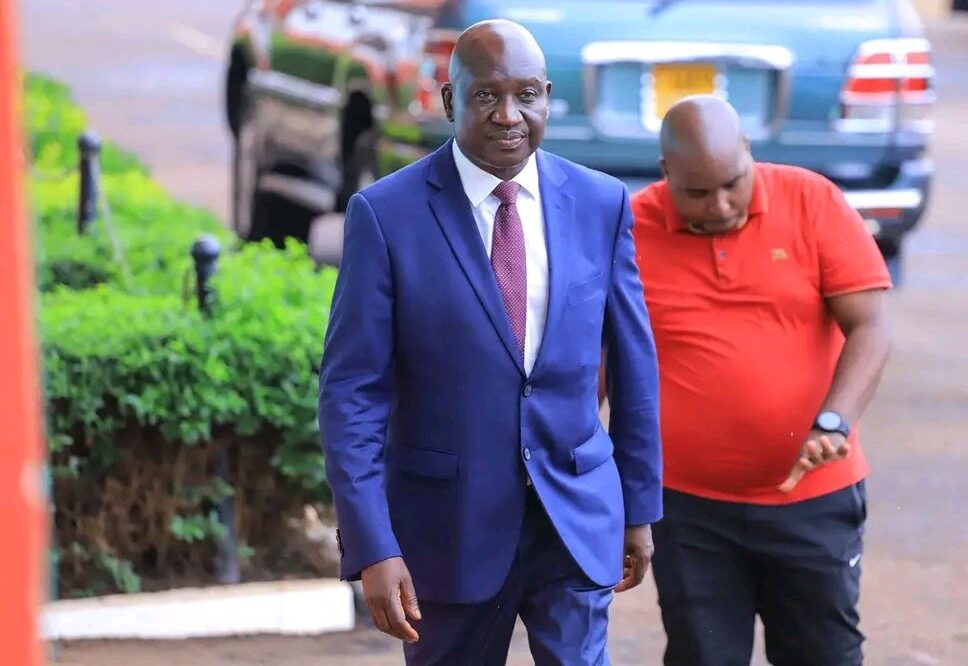In a dramatic turn within Ugandan football administration, Mr. Mulindwa has publicly questioned the motives of the Federation of Uganda Football Associations (FUFA) and expressed his readiness to quit his current role. This development has sent ripples through the local football community, raising concerns about leadership, governance, and the future direction of football management in Uganda.
Mr. Mulindwa, a prominent figure in Ugandan football circles often associated with club management and football administration, has long been seen as a vocal participant in matters influencing the sport’s growth. His recent statements shed light on the ongoing tensions within FUFA, the national football governing body responsible for the development, regulation, and promotion of football activities across the country.
The core of Mulindwa’s discontent lies in what he perceives as a lack of transparency and questionable decision-making processes within FUFA. He openly questioned the motivations behind some of the federation’s recent actions and policies, implying that certain moves may not align with the best interests of Ugandan football. According to Mulindwa, the organization seems to be driven by hidden agendas that undermine fairness and progress, creating a hostile environment for stakeholders who are passionate about the sport.
This skepticism follows a series of contentious events, including administrative decisions related to league management, club licensing, and player registrations. Mulindwa highlighted frustrations shared by many football clubs and officials who feel sidelined or ignored in key decisions that directly impact their operations and success. In his interactions with other stakeholders, a recurring theme has emerged—concerns about FUFA’s governance structures and the clarity of their strategic vision for football development.
Mulindwa’s readiness to quit signals a significant moment in Uganda’s football administrative history. He emphasized the emotional toll that these governance challenges have taken on him personally and professionally. For years, Mulindwa has been an advocate for integrity and professionalism in football administration, but the ongoing conflicts have made his position increasingly untenable. His potential departure is a loss not only to those who respect his leadership qualities but also to the broader football community seeking reform and stability.
The timing of this announcement also comes amid growing calls from clubs and football supporters for FUFA to be more accountable and responsive. Football in Uganda has experienced notable growth, especially in youth development and grassroots engagement. However, stakeholders argue that bureaucracy and internal politics have slowed progress, often hindering the realization of key projects meant to enhance infrastructure, talent nurturing, and competitive standards.
From a governance perspective, the situation calls for urgent reflection by FUFA’s leadership. Issues such as transparent stakeholder engagement, clearer policy communication, and inclusive decision-making processes are necessary steps toward restoring confidence among clubs and supporters. Mulindwa’s case brings into sharp focus the broader challenges faced by football authorities in balancing power dynamics, ensuring fairness, and fostering a collaborative environment rooted in shared passion for the sport.
Critics of FUFA have used Mulindwa’s statements to amplify demands for external oversight and reforms. They urge the government and other regulatory bodies to take an active role in ensuring that football administration upholds ethical standards and prioritizes the sport’s growth over individual interests. The current turbulence exposes vulnerabilities in the system that, if left unaddressed, could stunt Uganda’s ambitions to excel regionally and internationally.
In conclusion, Mulindwa’s questioning of FUFA’s motives and his readiness to quit underscores a critical juncture for Ugandan football governance. It challenges all involved parties to re-evaluate their roles and recommit to transparency, fairness, and collective progress. For Uganda’s football future to thrive, FUFA must engage meaningfully with stakeholders like Mulindwa, embrace reforms, and build an administrative culture that inspires confidence, unity, and sustained development.
The coming weeks are likely to be pivotal as Mulindwa’s stance stirs dialogues and potential actions that may redefine football administration in Uganda. For the fans, clubs, and players, this moment serves as a reminder that the sport’s success depends as much on governance integrity as on talent and competition.

